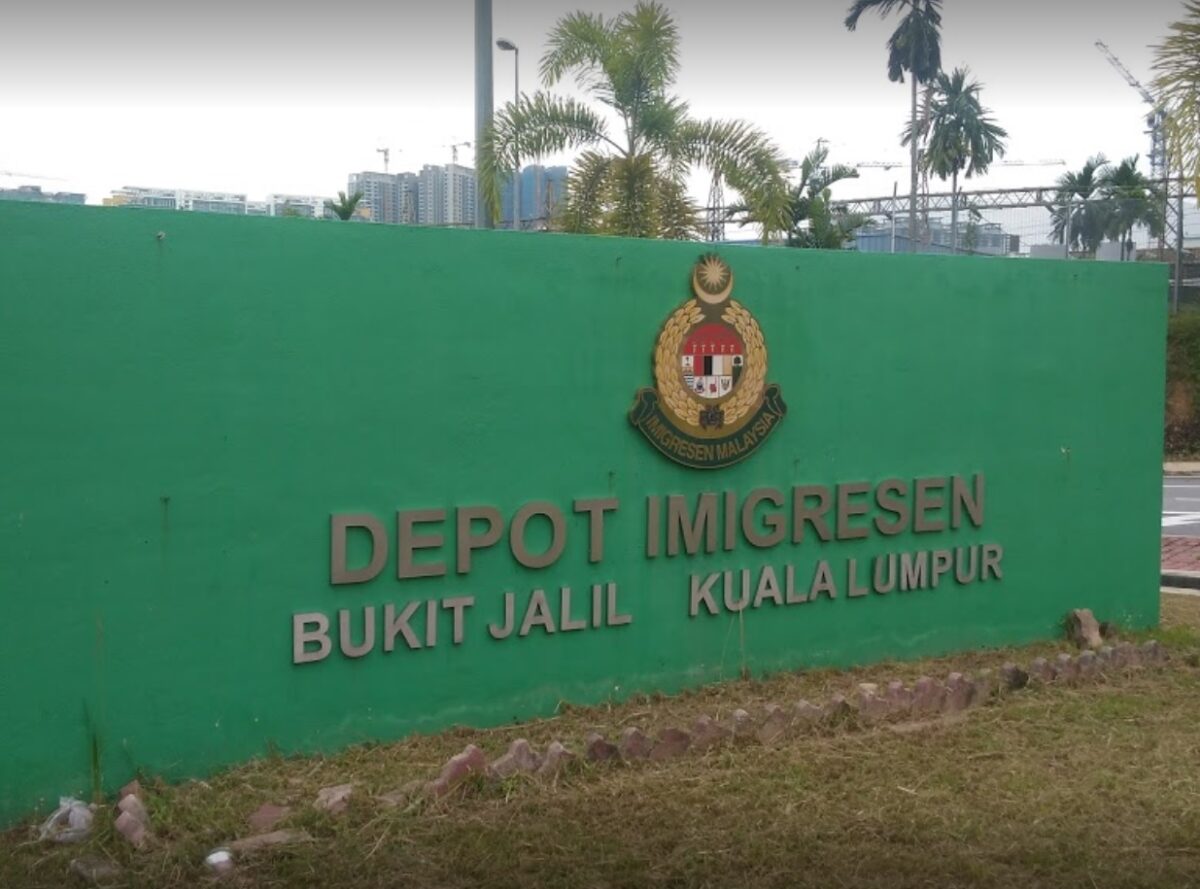KUALA LUMPUR, May 26 — New Covid-19 cases shot up to 187 today, including 155 at the Bukit Jalil immigration detention depot, the Ministry of Health (MOH) reported.
Out of the 187 new cases, 10 are imported, comprising seven Malaysians and three permanent residents or spouses of Malaysian citizens.
From 177 local transmissions, 173 are foreigners, including 155 at the Bukit Jalil immigration detention centre and 13 security guards in the Cheras shopping centre cluster.
Only four Malaysians were infected in the community.

According to Health director-general Dr Noor Hisham Abdullah, the Bukit Jalil immigration detention depot has confirmed 281 Covid-19 cases to date; followed by 66 cases at the Semenyih immigration detention depot, including one Malaysian staff; and 36 cases at the Sepang immigration detention centre.
He explained that detainees at Block A of the Bukit Jalil immigration detention depot had entered the facility before March 18 and were not tested for Covid-19.
Detainees at Block B and C had been arrested during the Enhanced Movement Control Order (EMCO), which were total lockdowns placed on certain areas with a spike of Covid-19 cases. Block D of the Bukit Jalil immigration detention centre housed women and children.
“We were told there’s no mixing between Block A, Block B, and Block C,” Dr Noor Hisham told a press conference.
“We are investigating the cause of the infection. In the detention centre, they have been in a confined space. More importantly, it’s under control at the moment, but we are investigating where’s the source of the infection.
“Perhaps it’s possible there’s transmission between those coming in from the EMCO to Block A. We do not know. It’s possible. Or staff providing services, cleaning services, that carry the infection. So investigation is ongoing.”
He said health authorities will screen all detainees entering detention facilities for Covid-19, as well as staff, noting that Malaysia has 14 immigration detention centres.
“What is important for us now is to focus not only into immigration detention centres, we’re also looking into prison and other detention centres.
“We realise if there’s an outbreak in the detention centre, this is exactly what we expected. The next couple of days, there’ll be an increase of cases,” the Health DG said.
He also said MOH has detected Covid-19 clusters at three construction sites involving 88 cases.
The Kuala Lumpur construction site 2 cluster has recorded 44 Covid-19 cases comprising 34 Bangladeshis, nine Indonesians, and one Malaysian.
The Kuala Lumpur construction site cluster has confirmed 31 Covid-19 cases involving 29 Bangladeshis and two Indonesians.
The Setia Alam construction site cluster has reported 13 Covid-19 cases, all among Bangladeshis.
“We wish to inform that these clusters were identified after instructions for screening of foreign workers in the construction industry, especially in red zones in Selangor and Kuala Lumpur,” Dr Noor Hisham said.
MOH found that the main causes of coronavirus transmission among foreign workers at construction sites were due to overcrowded and confined accommodation spaces, without any social distancing, as well as poor personal and environmental hygiene.
Dr Noor Hisham told employers to prepare hand sanitisers or facilities to wash one’s hands at workplaces; ensure safe distancing of at least one metre, including in work and eating spaces and during conversation; prohibit workers from gathering in confined or crowded areas; as well as to frequently disinfect workplaces, especially common areas.
Workers’ accommodation must also follow safe distancing rules, including spacing out beds by at least one to two metres; avoid eating in groups in the dining area; avoid crowding around the TV or the leisure space; and ensure frequent cleaning and santisation, including the toilets.








